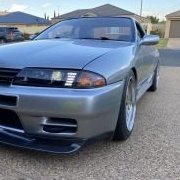R32 or RX7 Series 5?
Announcements
-
Similar Content
-
Latest Posts
-
By TurboTapin · Posted
I just got to work and skimmed through 61508 and 61511. I was surprised the CSA adopted both, but neither are enforced. To recap what I read, it states that in a perfect world, they should be segregated but they acknowledge that this is not industry standard and clearly mention that they allow mixing of safety and non-safety. 61511 also mentions software segregation like AB does in their safety PLC's. Now if only I could go back to control, let alone safety over comms. In my current line of work, we're only allowed monitoring and basic control over comms. Everything critical must still be hard wired as much as possible. -
By TurboTapin · Posted
I've unfortunately never been as they're on the complete other side of the continent and another country that isn't currently letting us in as easily as they use to. I even heard their stop signs over there actually say "Stop" instead of "Arret". If I decided to trek the 48h drive, I wouldn't know when or where to stop haha. Whenever I order parts from UP Garage, I order from Japan as it's cheaper. Same with GKTech... oddly enough, it's cheaper shipped from Australia then it is the US. UP Garage Japan operates their US leg though, unlike Tomei. If Tomei JPN had the power to close down Tomei USA, I'm sure it would be done in a day. They're two completely separate entities. Tomei JPN messed up somewhere originally agreeing to its creation and got sacked big time. -
By KKaplumbaa · Posted
I asked someone about this and he told me about the Audi 1.8T engine. But I think it would be difficult to swap -
I don't know that machine specifically, but I'd personally go for something with a little more kick than 130amp. Around up to 180 would be good. At the 6mm range, you're really pushing the machine hard and don't have a long period you can run for with out needing to give it a rest. Lots of MIG machines come with a regulator and hose. A lot will come with a starter roll of wire too, but it isn't too expensive to buy. I'd recommend NOT buying a massive roll too, as you don't want it sitting around FOREVER in the machine between uses and potentially going to shit. For thin sheet metal, get a roll of 0.6mm if you're doing over 3mm and above, switch over to 0.8mm wire. Even by 2mm you'd probably really want to switch. As for gas battle, it's all swap and go style now. You'll pay a bottle deposit, and then X amount to swap for a full one. I think it's like $200 or $300 for a D Size bottle upfront as "deposit", and like $110 to $150 per swap. My D size CO2/argon bottle lasts a fair bit of welding on the MIG. And I run an E size bottle on the TIG. For DIY MIG, stick with a D size bottle. If you really start to get into a LOT of welding and doing it really regularly, then upgrade. If you're like most DIY car guys, one D bottle will last you 2 or 3 years easily. I think I've been on my current bottle about 5 years. It is starting to get low, but I've been smashing it a lot more the last 6 months.
-
By KKaplumbaa · Posted
SR20s came with cars like the Bluebird and Primera, but the RB20 never came. The ones in Turkey were either brought in specially or from abroad. That's why RBs aren't as common as SRs. And if a part breaks or I need to replace it when doing maintenance, it's harder to find parts for RBs.
-









Recommended Posts
Create an account or sign in to comment
You need to be a member in order to leave a comment
Create an account
Sign up for a new account in our community. It's easy!
Register a new accountSign in
Already have an account? Sign in here.
Sign In Now